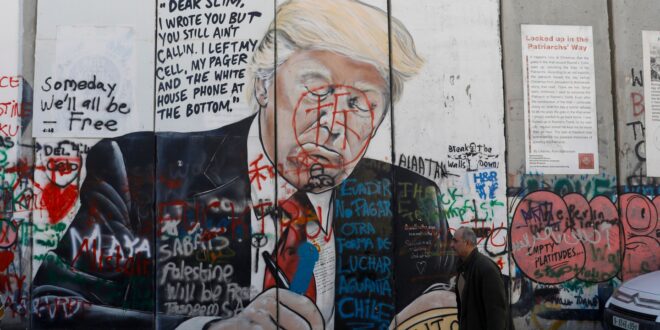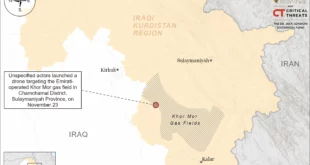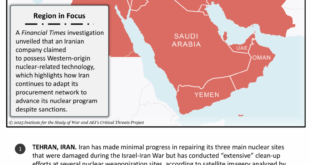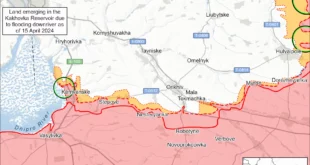Analysis: Trump’s vision for Gaza bolsters Netanyahu politically, normalises ethnic cleansing, and emboldens Israel to derail the ceasefire and return to war.
US President Donald Trump’s remarks on Gaza, in which he has repeatedly voiced plans to “take over” the Palestinian territory, displace its residents to other countries, and turn the war-wrecked enclave into a glamourous real estate development, have created uncertainty about the future of the ceasefire agreement.
The fragile truce is already facing serious hurdles as it enters its second phase of implementation, with many fearing his proposals will directly, or indirectly, collapse the deal that ended Israel’s devastating 15-month war.
On Tuesday, nearly a week after Trump’s first comments on displacing Palestinians from Gaza, military spokesman for Hamas’s Al-Qassam Brigades, Abu Obeida, declared on his Telegram channel that the release of captives scheduled for Saturday would be suspended.
He did not mention Trump’s remarks but instead cited repeated Israeli violations of the 19 January deal. These included “delaying the return of the displaced to the northern Gaza Strip, targeting them with shelling and gunfire in various areas of the Strip, and not allowing relief supplies of all kinds to enter as agreed upon, while the resistance has implemented all its obligations,” he said.
In response, Trump said that if the Israeli captives were not released by noon on Saturday, then “all hell” would break loose and he would propose cancelling the ceasefire deal.
Mahmoud Mardawi, a senior Hamas official, dismissed Trump’s proposal for the US takeover of Gaza as irrelevant to their decision-making, insisting that the ceasefire remains strictly governed by the agreement’s terms.
“The agreement’s terms govern the relationship between us and Israel, and mediators are the only ones authorised to interpret them. It is a solid agreement,” he told The New Arab.
According to analysts, Israeli Prime Minister Benjamin Netanyahu’s next steps towards both the ceasefire’s terms and Hamas’s decision will be significantly affected by Trump’s vision for Gaza.
Israel’s security cabinet met late on Tuesday, with Netanyahu releasing a video statement in which he welcomed Trump’s comments and said that the ceasefire would end and Israel would “resume intense fighting until the final defeat of Hamas” if the captives were not released on Saturday.
“Trump’s position, as leader of the world’s most powerful country, has created a negative climate that could cast a shadow over the ceasefire process,” Mardawi warned, noting that Netanyahu might use this rhetoric to push the notion of “absolute victory”.
Empowering Netanyahu
Netanyahu, who was standing next to Trump as the latter shared his vision for Gaza with the world, is among the rare voices to welcome the proposal to displace Palestinians, which was strongly opposed by the UN, China, Russia, the UK, France, Germany, Australia, Spain, and Arab states, including those pressured by Trump to take in Gazans.
“The plan of Israel’s greatest friend” – referring to Trump – “could change history,” said Netanyahu at the time. According to Israeli affairs analyst Khaldoun Barghouti, Netanyahu’s delight with Trump’s comments stems from the internal boost it has given him, amidst strong opposition to the deal within his cabinet.
“Netanyahu likely entered the ceasefire deal – or at least its first phase – under pressure from the Trump administration. Yet, Trump’s enthusiastic endorsement, juxtaposed with [Steve] Witkoff’s more measured statements, creates ambiguity about the US administration’s true objectives,” explained the analyst, referring to the US Middle East envoy’s commitment in late January to reaching the ceasefire deal’s second phase.
“Netanyahu seems more focused on securing his coalition’s stability – something reflected in remarks from Smotrich and hints from Itamar Ben-Gvir about possibly rejoining the government,” noted Barghouti, explaining that Trump’s Gaza plans empowered Netanyahu’s position in appeasing his far-right coalition members.
In a Monday vote of no-confidence at the Knesset, which was largely symbolic, Netanyahu boasted that Trump’s statements were “revolutionary” and their meeting at the White House was a sign that the US-Israel alliance “has never been so strong”.
Israeli affairs expert Anas Arqoub told TNA that Trump’s statements served to normalise the idea of resettling Gaza’s population. It is “no longer a fringe proposal in Israel, it has gained growing public support”, he said, adding that it defies the essence of the ceasefire deal, which promised reconstruction and the return of all internally displaced Palestinians.
“A Channel 12 poll conducted after Netanyahu’s White House visit found that 72% of Israelis back Trump’s resettlement plan, while only 17% opposed it. However, opinions on feasibility were divided: 46% doubted it would be implemented, 35% believed it would, and 19% were undecided,” noted Arqoub.
“These figures indicate a shift in Israeli public opinion, with a significant portion now viewing displacement as a legitimate strategic option for dealing with Gaza. This could embolden Netanyahu to adopt a more aggressive stance in negotiations or even take concrete steps to advance this scenario, especially given the political cover Trump has provided during his visit,” explained Arqoub.
Israel’s calculations
According to Barghouti, Trump’s Gaza plans and the boost it has given Netanyahu domestically may drive him to “use Trump’s rhetoric as a pretext to blame the Palestinians for non-compliance and derail the agreement altogether,” especially as Hamas is now attempting to pressure Israel into complying with its obligations.
“Regarding Trump’s call to depopulate Gaza and place it under US control post-war, these remain political positions rather than concrete plans. They disregard Palestinian opposition and wider Arab, regional, and international resistance, and while the final outcome remains uncertain, one thing is clear: Netanyahu will likely continue exploiting Trump’s remarks to stall negotiations,” noted Barghouti.
Echoing similar notions, Arqoub suggests that Trump’s rhetoric has reinforced Netanyahu’s governing coalition, providing him with greater leverage in negotiations with Hamas.
“By citing Trump’s remarks, Netanyahu has managed to pacify the most extreme elements of his government, persuading them that completing the next phase of the prisoner swap will give Israel the political cover needed to resume military operations,” he states.
As far as Hamas is concerned, “what governs all parties are the agreement’s clauses. We will adhere to every word, and we will not proceed to the next phase unless the prior phase is fully implemented,” Mardawi affirmed to TNA.
Labelling Trump’s proposal as a violation of international and humanitarian law, as well as Palestinian rights, Mardawi insisted that “there’s no denying that Trump’s narcissistic rhetoric has poisoned the regional atmosphere”.
 Eurasia Press & News
Eurasia Press & News



